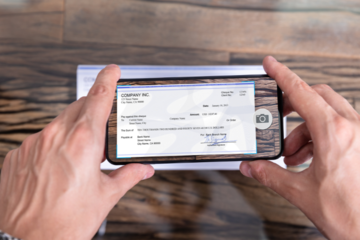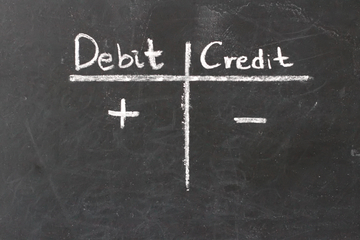It’s becoming rare to see cash used as a method of payment. The inconvenience of carrying paper and coins has mostly been replaced by cards and digital forms of payment. The use of credit cards are now a prominent form of payment, but there are benefits and drawbacks associated with their use.
What Is a Credit Card?
There once was a time when paying for a purchase was commonly performed with cash or writing a check. The introduction of cards as a payment method thinned out many wallets and eliminated the need to carry large amounts of cash.
Have you ever wondered, “how does a credit card work?” That discreet rectangular piece of plastic or metal, when issued by an institution, lets you carry a balance at a specific rate of interest. It is essentially a line of credit you might pay back all at once or over a more extended period.
With most merchants, you can use that card to pay for goods or services, or the card issuer might offer cash advances taken at ATMs or convenience checks. Both cash advances and convenience checks typically come with a higher interest rate.
How Do Credit Cards Work?
Credit cards require an application to be submitted, which will consider your credit score and income. Based on your score, the lender will either decline the application or grant a specific credit limit and an interest rate that matches the risk of giving you access to a line of credit.
Once the card is received and activated, you may swipe or tap to pay with the majority of merchants, which becomes a card balance that needs to be repaid. If the balance is repaid before the end of the billing period, no interest will be assessed on the amount you’ve charged. If you choose to carry the balance and pay it month to month, monthly interest charges will apply.
Interest charges are reflected as an annual percentage rate (APR), the total percentage charged yearly, including any additional costs, like card fees. The interest rate portion of the APR is broken out monthly and charged on the balance you have at the end of the statement period.
Credit Cards Vs Debit Cards
If you have a checking account, you most likely accepted a debit card with it as a way to access your money. When you use that debit card at an ATM or merchant, those funds are debited from the money you have in your bank account. No interest is charged on your purchase because your available funds paid for the transaction.
Types of Credit Cards
There are a variety of credit cards available, and they can vary based on the card issuer, network, card purpose, and card perks.
Card Issuers
Credit card issuers are financial institutions such as your bank or card providers that only deal in credit cards. The monthly bill will come from your card issuer, and each issuer can define card limits, fees, and interest rates. The issuer determines if you qualify for the card or are declined.
Networks
Credit cards have different networks behind them, meaning the processing of transactions over that network infrastructure. The largest card networks are Visa and Mastercard, comprising over 83% of all cards issued, and Visa is the most extensive network, with 52.8% of the market.
To make things a little more convoluted, some card issuers also have their own network. American Express and Discover are the two most prominent.
Merchants may choose to honor some cards but not others depending on the processing fees, although Visa and Mastercard could be considered universally accepted.
Card Purposes
Some credit cards are intended as ways to build or rebuild credit. They will typically come with lower credit limits and somewhat higher APRs, but nothing has a more significant influence on your credit score than a credit card. Credit cards used responsibly make a big difference to your credit score and are worth the higher APRs . Other cards could be intended for business spending or issued to consumers based on income and credit scores at different credit limits. Higher credit scores will equate to higher credit limits.
Perks
With higher credit score requirements come better and better perks. Those can include cash back, airline miles earned with each purchase, travel insurance, and even early access to event tickets. Some exclusive cards might charge an annual fee but offer discounts with retailers, free airport lounge access, and concierge services.
Another common perk of many cards will be introductory offers that reward the cardholder based on a certain amount spent over the first few months of having the card. Some might offer an interest-free period for the first six months or longer.
Credit Cards Are Everywhere
There are many different credit cards for many different types of borrowers. Overall, they are one of the main ways people make purchases, and each comes down to their most important benefit, the power to purchase something now and pay for it later.
Credit cards are a powerful tool when used responsibly and a main component to building your credit score. They can be a savior in an emergency when access to funds is crucial.
With responsible use, they are a critical component of a sound financial strategy.
FAQs
Should I pay off my credit card after every purchase?
Paying off your credit card after each purchase will ensure you are not charged interest on the purchases you make.
Do you have to pay an annual fee on a credit card if you don't use it?
If your card has an annual fee, you will be expected to pay it regardless of whether you use the card for purchases or not.
How many times a month can I pay my credit card?
Some credit card companies limit the number of auto-payments you can schedule. Generally you can make as many manual payments as you want. Be sure to check with your credit card company for specific policies.



